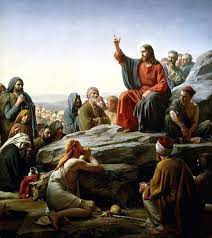Gloria
- The Rev. Thomas C. Pumphrey

- Sep 7, 2022
- 3 min read
Enter his gates with thanksgiving; go into his courts with praise; * give thanks to him and call upon his Name. Psalm 100:3

Dear Friends in Christ,
Why do we sing the Gloria each Sunday? We start our service with a hymn, then we pray that God would prepare our hearts to worship him. Then we sing again—this time we usually sing a song called the Gloria. We change the tune from time to time, but why do we sing this second song at the beginning of the service? And why does the text feel a little unusual?
The Gloria is an ancient song of the church, translated from the Greek and Latin. We call it a canticle, a name given to songs usually from the Bible, but sometimes also from the ancient heritage of the church, such as this one. This is, more properly the “Gloria in Excelsis,” from the opening words in the Latin version, translating ‘Glory to God in the highest.’ This is a song of praise. It begins with the words the angels sang at Jesus’ birth (Luke 2:14) and follows with a prayer to the Father and the Son (with reference to their shared glory with the Holy Spirit). It includes a phrase borrowed from the “Agnus Dei:” saying to Jesus: ‘Lamb of God, you take away the sin of the world.’
We include this song of praise at the beginning of the service in part because of the practice of starting our worship of God with praise. “Enter his gates with thanksgiving; go into his courts with praise” says Psalm 100:3a. We use this song because it has such continuity with the church across centuries and around the world today, sung in many languages and denominations. Its solid theology and language of praise is a good touchstone for our worship (in a similar way to that of reciting the creed each week). Granted, it is a bit light on the Holy Spirit, but it sets forth praise of God the Holy Trinity, and links us to our roots and foundations. For more info, click here.
But why do we sing this song after we have just sung a hymn of praise to begin the service? First, not all services have music, so on Saturday night at St. Peter & St, Paul, for instance, we still recite the Gloria to give voice to our praise. And the continuity of the Gloria can be balanced by one of a variety of hymns chosen for that week before the service begins.
However, the prayer book does allow some other song of praise, and occasionally we have used alternatives. For instance, we’ve used the First Song of Isaiah (“Surely it is God who saves me”), and we’ve also varied the music used for the Gloria. Sometimes the Gloria is a little tricky to sing because the words are not metrical—they don’t have the same number of syllables in each line as the texts of most hymns do. Our Director of Music, George Chesnut, found an excellent setting of the Gloria composed for the 100th anniversary of our Cathedral by George Mann, a Director of Music in Douglasville. This very singable music helps us to sing God’s praise as we begin our service.
You might notice, however, that there are seasons where we don’t sing the Gloria. In Advent and Lent, we use a more penitential canticle instead—one less of praise and more one seeking God’s mercy. We often sing the Kyrie Eleison (Greek for ‘Lord have mercy on us’) and sometimes the Trisagion (three times singing “Holy God, holy and mighty, holy immortal one, have mercy on us”). This also is a helpful way to enter into worship: in humility, seeking God’s grace and mercy.
This week, when you sing the Gloria, think about the words you are singing and what they say about God. Use this hymn to draw from yourself a response to God of praise, recognizing God’s greatness with our appropriate response. This hymn is a great teacher and a great practice that helps us worship God. The Gloria also helps prepare us to hear God’s word in Holy Scriptures and to celebrate the feast of the Eucharist that draws us together. Glory to God in the highest!
Yours in Christ,
-Tom




